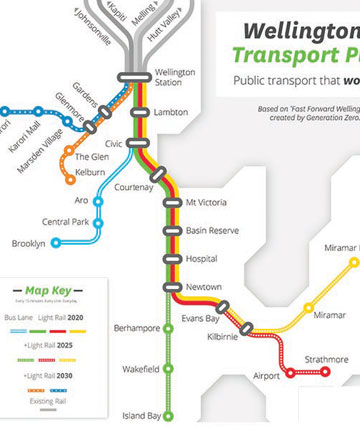The Save the Basin Campaign has described the decision by the New Zealand Transport Agency (NZTA) to appeal the Board of Inquiry decision declining consent for its proposed Basin Reserve flyover as an indictment of the Agency’s refusal to learn from its mistakes.
“The Board of Inquiry delivered a comprehensive report giving clear reasons for declining the New Zealand Transport Agency’s poorly conceived and badly put together proposal to build a flyover at the Basin Reserve,” Save the Basin Campaign spokesperson Tim Jones said. “The Board’s decision made it clear that a flyover was not an appropriate structure to build at the Basin Reserve.”
“Instead of accepting this decision, acknowledging the failure of its flyover plans and moving on to develop a better proposal in partnership with the people of Wellington and with community groups, the NZTA has chosen to continue pursuing its flyover plan through the courts,” Mr Jones said. “It seems that the NZTA’s wounded pride is more important to it than developing good transport solutions.”
On Radio New Zealand this week, Transport Minister Gerry Brownlee said in reference to the Basin flyover Board of Inquiry that “good process should not be stalled to save costs”. Clearly, he regards the Board of Inquiry as a good process, but the New Zealand Transport Agency does not. The Save the Basin Campaign thinks that the Minister should have instructed NZTA to stop obsessing over its failed flyover project, accept the decision and start working on an alternative solution that works for Wellington, rather than wasting more taxpayer dollars on an appeal.
“Wellington is a modern capital city that deserves sustainable, modern transport solutions that take account of a unique urban environment,” Mr Jones said. “It’s time that the NZ Transport Agency recognised that and stopped flogging a dead horse.”
Mr Jones said that Save the Basin would be carefully considering its detailed response to NZTA’s appeal once it had received the appeal documents.
